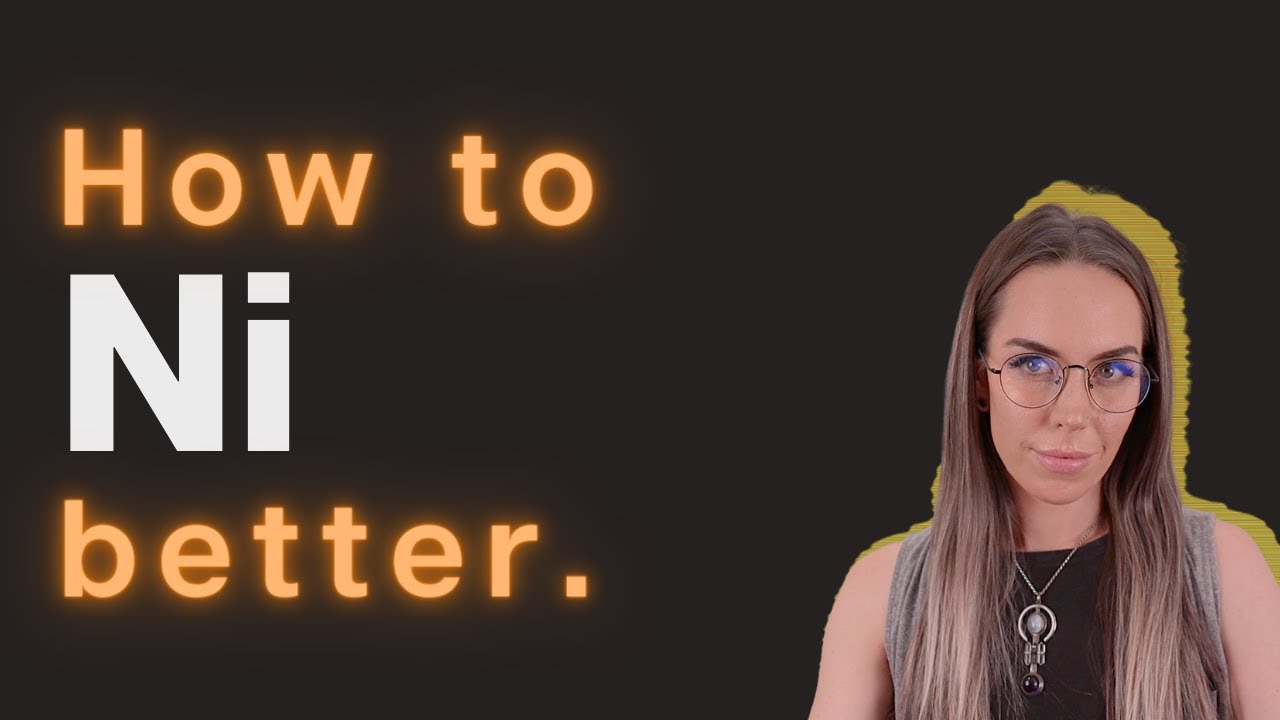The #1 Thing that will make INTJs Do Anything
Summary
TLDRIn this video, Lindsay Elijah explores what motivates INTJs to take action, focusing on their unique cognitive processes. INTJs approach life through theories and hypothetical 'if-then' statements, constantly analyzing and solving problems to reach a predefined outcome. Lindsay explains how INTJs even improve skills outside their natural cognitive functions (such as Fi or Fe) to achieve their goals. Ultimately, it's their obsession with problem-solving and long-term results that drives them. The video emphasizes how INTJs operate and why their actions are always rooted in their own internal theories.
Takeaways
- 🧠 INTJs' actions are driven by their own theories and problem-solving strategies.
- 💡 INTJs think in terms of hypothetical conditional statements: 'If X happens, then Y should work.'
- 🔍 Their focus is on achieving a desired outcome through calculated steps and logic.
- 🤔 INTJs can excel in areas outside their dominant cognitive functions by applying theories to master new skills.
- 💼 Actions they take are geared toward achieving an end goal, not simply enjoying the process.
- 🧩 INTJs are obsessed with solving the root of the problem to reach their desired outcome.
- ⚖️ Balance is key: INTJs strive to align their practical functions (like Fi and Se) with their theoretical goals.
- 🎯 Even when engaging in new tasks, they’re preparing tools for future challenges, keeping long-term results in mind.
- 📚 Their use of cognitive functions is strategic, not accidental—everything is part of their broader theory of success.
- 🚀 INTJs are driven by an overarching life theory where each action and skill contributes to their ultimate goal.
Q & A
What is the main topic of the video?
-The video discusses how INTJs are motivated by their own theories and how their brain operates on conditional statements to achieve a desired outcome.
How do INTJs view their actions according to the video?
-INTJs view their actions as part of a larger theoretical framework, where specific actions are a means to achieve a desired end result.
What is a theory, and how is it relevant to INTJs?
-A theory is a speculative idea or plan about how something might be done. For INTJs, theories are central to how they approach tasks and achieve goals.
Why do INTJs sometimes develop skills outside their dominant cognitive functions?
-INTJs develop skills outside their primary functions, such as using Fi or Fe, to be better equipped to solve future problems that may require those skills as tools.
What drives INTJs to take action, according to the video?
-INTJs are driven to take action by their own theories and the desire to see how different variables and tools come together to achieve a specific outcome.
How do INTJs balance their dominant and auxiliary cognitive functions?
-INTJs balance their Ni and Te functions with their Fi and Se functions by consciously recognizing the value and enjoyment of certain actions in the present, while still being rooted in their long-term theoretical approach.
What role does Fi play in an INTJ's decision-making process?
-Fi helps INTJs recognize what is personally important and valuable to them, guiding them to focus on things that matter in the present reality, not just in relation to their theoretical plans.
Why might an INTJ strive to use cognitive functions that are not their strengths?
-INTJs strive to develop their non-dominant cognitive functions because they believe those functions could become useful tools for solving future problems that align with their long-term goals.
How does the INTJ mindset contribute to long-term planning?
-The INTJ mindset, centered around theories and hypothetical statements, allows them to create long-term strategies where each action is calculated to contribute to an overall goal.
What is the key takeaway from the video about INTJ behavior?
-The key takeaway is that INTJs are deeply motivated by their own theoretical frameworks, and their behavior is driven by a desire to solve problems and achieve their long-term goals.
Outlines

This section is available to paid users only. Please upgrade to access this part.
Upgrade NowMindmap

This section is available to paid users only. Please upgrade to access this part.
Upgrade NowKeywords

This section is available to paid users only. Please upgrade to access this part.
Upgrade NowHighlights

This section is available to paid users only. Please upgrade to access this part.
Upgrade NowTranscripts

This section is available to paid users only. Please upgrade to access this part.
Upgrade Now5.0 / 5 (0 votes)





